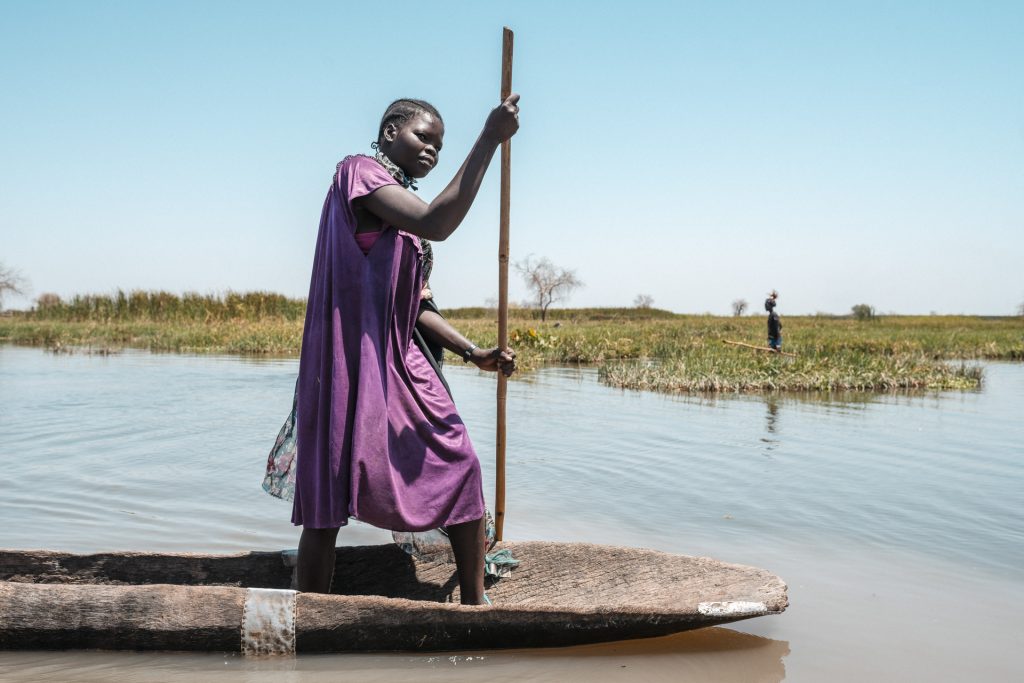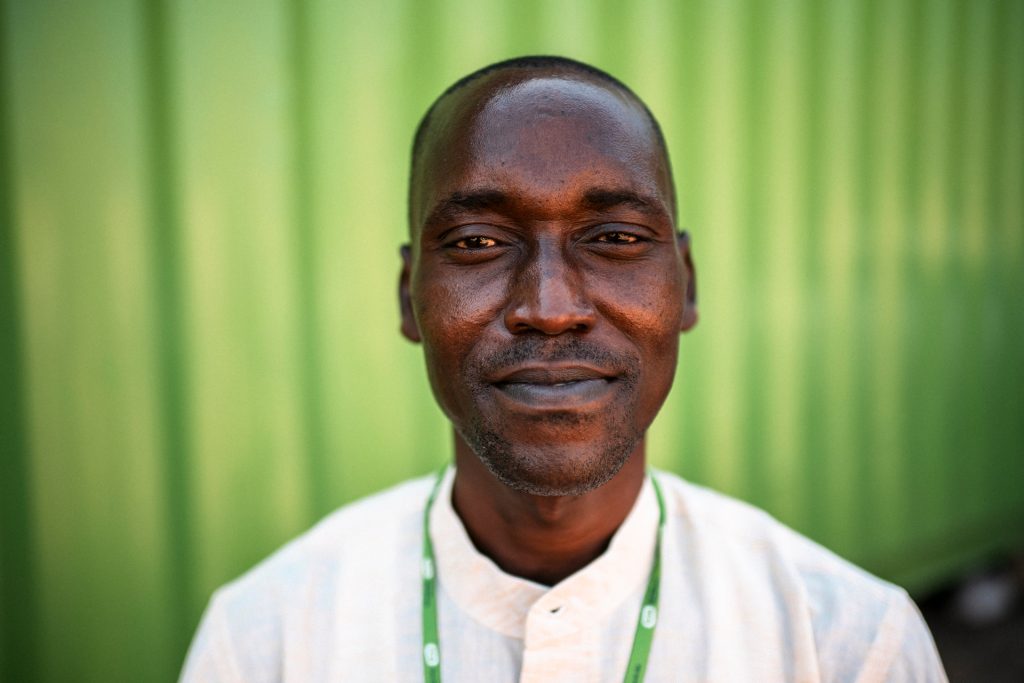More than 570 000 people have sought refuge in fragile South Sudan as the number of refugees fleeing the war in Sudan grows
South Sudan, which is hosting a large number of refugees, is grappling with looming elections, severe inflation and extreme weather. In addition, millions of South Sudanese are themselves refugees. Those fleeing Sudan face volatile conditions.
SOUTH SUDAN, the world’s youngest country, has received increasing numbers of refugees over the past year. This is due to the devastating war in Sudan, which has been going on for almost a year now, forcing people to flee to South Sudan and other neighbouring countries such as Chad, Egypt and Ethiopia.
Seme Nelson, FCA Country Director for South Sudan says that among those who have fled are both Sudanese and South Sudanese.
“During the post-independence civil war in South Sudan, especially between 2013 and 2016, many South Sudanese fled to Sudan. Now they have been forced to return back to South Sudan. Sudanese are also now forced to leave their homes and become refugees in South Sudan. The numbers of both returnees and Sudanese refugees is steadily increasing,” says Nelson.
The war in Sudan started in April 2023, and the UN Office for the Coordination of Humanitarian Affairs (OCHA) estimates that South Sudan has already received 572,000 refugees since the war began, of whom around 20% are Sudanese fleeing the fighting. The remaining 80% are South Sudanese returning to their country of origin, fleeing again in search of a safe life.
“These are not just numbers. When you’re talking about millions or hundreds of thousands, every number is a human life,” Nelson reminds us.
Cash donations help buy food and send children to school
Nyakuola Kong Gatkak, a mother of three, recently returned to South Sudan, her country of origin. She lived in Sudan for four years.
“I didn’t want to leave Sudan, but we had no choice,” she says, adding that her husband disappeared when the war broke out.
While living in Sudan, both Gatkak and her husband worked. The family had managed to save some money, which allowed Gatkak and her children to escape when the war broke out. The long escape route took the family first to an IDP camp in Sudan and then to the Sudan-South Sudan border, where they managed to reach Malakal.

The family settled in their former homeland of Old Fangak in July 2023. In Old Fangak, livelihood opportunities are very limited, and the floods of recent years have made it difficult to grow food to eat and sell. Gatkak supports her family by collecting and selling firewood. In addition, the family has received cash assistance from FCA. With this money and the income from the firewood, Gatkak pays for her children’s school fees and meals.
“The children don’t have to go to bed hungry,” says Gatkak.
Refugees want to learn the language
In addition to cash aid, FCA supports education and training opportunities for refugees fleeing the war. With refugees and returnees, the number of students in many schools has multiplied and the need for education has increased.
However, a challenge has been that Arabic is widely spoken in Sudan, while in South Sudan the language of instruction is English.
Huda Ismail Abakar, a Sudanese mathematics and computer science teacher, took part in a three-month language course for teachers in Juba, the capital of South Sudan, supported by FCA. The aim is to enable teachers who have fled Sudan to return to work as soon as possible.
“It is important for me and my children to learn the language. You can’t communicate with others if you don’t know the language. Other people in my refugee camp also want to learn. When we teachers return to the camp in the evening after the course, many people ask us to teach them English,” says Abakar.
Abakar says the family fled Sudan because the sounds of fighting and explosions were particularly frightening for the young children in the family. As they fled, Abakar was expecting his youngest son, who is 18 days old at the time of the interview.
“We are not planning to go back. When we left Sudan, the place I call Sudan no longer existed. The war has destroyed a lot and it is still going on. We owned a shop that has now been looted for nothing. Our homes were also destroyed,” Abakar recalls.
Election year, inflation and extreme weather events – South Sudan is also suffering from multiple crises
South Sudan gained independence from Sudan in 2011. Just a few years later, the country was plunged into a brutal civil war, the effects of which are still very much in evidence. The post-civil war peace in the society is fragile.
The repeatedly postponed elections, scheduled for later this year, are a source of concern. Locals fear the elections could plunge the country into a new crisis.
Daily life is also hampered by high inflation, limited livelihood opportunities and extreme weather events that make farming and other daily activities difficult. In mid-March, South Sudan closed its schools due to extreme heat.
The refugee situation is expected to continue for a long time
People fleeing the war need shelter, food, water, medicine and protection. How prepared has South Sudan been to receive refugees from neighbouring Sudan?
“South Sudan was not prepared to receive refugees from other countries, as we have also had difficulties getting our own citizens to return home. More than two million South Sudanese live as refugees outside the country’s borders, while another two million live as internally displaced persons,” recalls Seme Nelson.

South Sudan’s own refugee situation has been described as the largest in Africa. But Nelson sees it as a good sign that the war in Sudan has prompted many South Sudanese to show solidarity with refugees and returnees. For example, families have opened their homes as shelters for those who fled.
“However, many actors helping refugees are facing funding difficulties and we do not expect the refugee situation to ease this year. The crisis in Sudan and South Sudan is real. We must continue to help,” Seme Nelson stresses.
Information for journalists:
Tapio Laakso, head of FCA’s advocacy work, who recently returned from South Sudan:
tapio.laakso(at)kua.fi
Interview requests for Seme Nelson, FCA’s country manager for South Sudan via humanitarian communication expert Ulriikka Myohänen: ulriikka.myohanen(at)kua.fi
Pictures for media use here (including metadata).